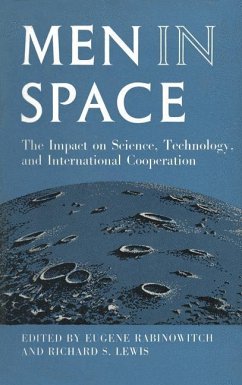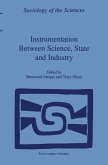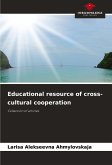AFTER THE LUNAR LANDING Our concern in this volume is the impact upon science, technology and international cooperation of man's emer gence from the "cradle," the biosphere of Earth, to visit the surface of another planet. The editors invited experts in the physical and social sciences who had been think ing, talking and writing about space programs for a long time. Some had been critical of manned space flight, its motives and its costs. Some have been or are currently involved in Project Apollo. Some had not committed themselves to value judgments but were fascinated by probable results. In general, the authors regard the moon landing as a climactic event in man's evolution. Sir Bernard Lovell is likely to have a cataclysmic effect on society suggests it and that an international effort should be mounted to send men to Mars in the 1980s. The question of how Project Apollo relates to a scheme of priorities which takes into account such needs as housing, health, pollution and theproblems of urbaniza tion enters the discussion from several points of view. Eugene Rabinowitch suggests that Apollo may stimulate the development of a system of establishing national priorities in the application of the nation's resources. Freeman Dyson, on the other hand, does not believe that ix PREFACE x any "hierarchy of committees" can devise an accepted order of priorities.
Hinweis: Dieser Artikel kann nur an eine deutsche Lieferadresse ausgeliefert werden.
Hinweis: Dieser Artikel kann nur an eine deutsche Lieferadresse ausgeliefert werden.








